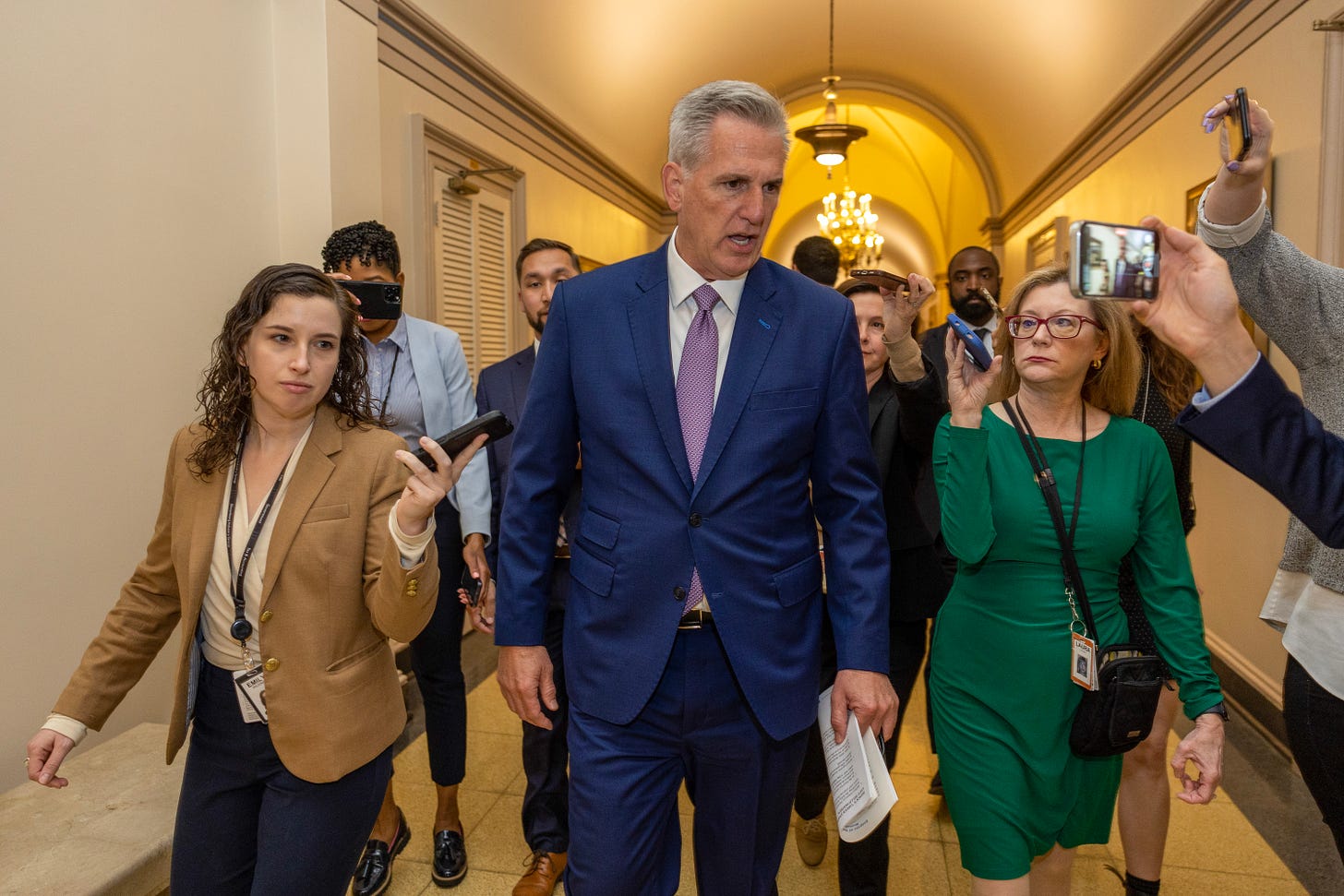Why a debt default would be monumentally stupid
"I say this as a registered Republican: Why are they giving all of these gifts to Putin and Xi?" financial crisis scholar Kathleen Day tells us.
An important note from Aaron: Tomorrow, I’m publishing a special Saturday edition of Public Notice featuring a piece about what we can learn from the experiences of other democracies where former political leaders have been prosecuted. The article will run as an exclusive for paid subscribers, so if you’d like to read it and also get full access to Public Notice, please take advantage of the 7-day free trial I’m offering by clicking the button below. Paid subscriptions make this work possible. Thank you!
Treasury Secretary Janet Yellen’s announcement this week that the US government could default as soon as June 1 unless Congress authorizes a debt limit increase means that lawmakers are now in imminent danger of scoring one of the most damaging own goals in history — one that jeopardizes America’s economic standing and would make the lives of people here more expensive and difficult.
And why has Congress been unable to pass legislation authorizing the government to pay its bills? Because Republicans control the House, and they’re using the debt ceiling as leverage to try to pass deep and unpopular spending cuts. President Biden so far has been refusing to negotiate with the hostage-takers, but he’s meeting with House Speaker Kevin McCarthy and other congressional leaders on May 9 to talk about the looming crisis.
You’d think all parties involved have good reason to hammer out a deal before the government can no longer meet its obligations. But McCarthy has repeatedly vowed he won’t pass a debt ceiling increase unless Democrats make concessions, and going back on that could cost him the support of the right flank of his caucus. Meanwhile, the impasse has fueled speculation that perhaps Biden will come up with creative ways to keep paying the country’s debts even if Congress can’t reach a deal.
Public Notice is entirely funded by readers and made possible by paid subscribers. To support this work, please click the button below and sign up to get our coverage of politics and media directly in your inbox three times a week.
We’ll find out soon enough. But for this edition of the newsletter, Thor connected with Kathleen Day, a journalist and financial history professor at John Hopkins University, to get her perspective about how a default would hurt the US economy and individual Americans and to discuss which global powers stand to gain from Congress’s potential self-immolation.
A transcript of their conversation, lightly edited for clarity and lengths, follows.
Thor Benson
What would be the immediate effects of default?
Kathleen Day
First of all, every day we delay, the damage increases. The concern, globally, that we might some day actually skate off the cliff and default increases. Most people probably think the United States eventually would pay, but people want it to happen right away. They don’t like the delay.
US securities for decades and decades have been the benchmark of financial security around the world. They have become the de facto, baseline measurement of what is the most risk-free security, and most other interest rates in the world are based on that. If we blow that up, all bets are off.
It hurts us from a national security point of view. It means that other more authoritarian states can whittle away at our dominance financially. It means taxpayers will pay more money — to the tune of millions and billions of dollars — because the less certain someone is about being repaid, the more they demand in interest when they lend you money.
Thor Benson
How would this affect the average person day to day? Would it increase inflation, for example?
Kathleen Day
It’s going to raise their interest rates and taxes. Inflation is complicated, but interest rates reflect anticipated inflation. Interest rates also are a form of inflation. It’s the cost of money. If interest rates go up, your cost of borrowing as a consumer goes up, and that means the cost of your credit card debt — the interest you pay on it — will go up. It also means the tax that you pay will go up.
Call me old fashioned, but I think people should pay their debts. That used to be a hallmark of the Republican Party. Personal responsibility. Whatever happened to that?
Thor Benson
How could a default cause international economic problems?
Kathleen Day
That’s why I think it’s a national security issue.




